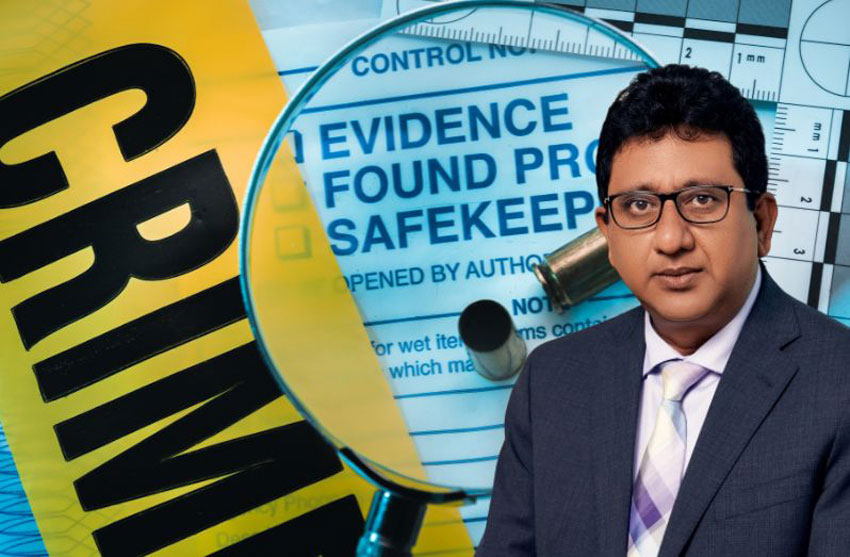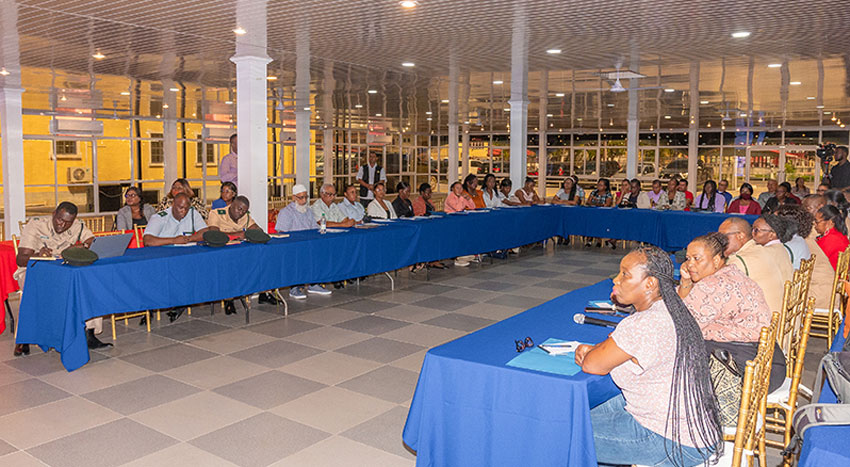Community leaders play crucial role in restorative justice
- Home
- News

–continuous efforts being made to address social issues at the root, Minister Sukhai, Attorney-General say
MINISTER of Amerindian Affairs, Pauline Sukhai, has said that community involvement in restorative justice is crucial for promoting accountability, healing, and offender reintegration, empowerment of victims and community members, and prevention of future crimes.
While delivering her address at the opening of a restorative justice training for toshaos, prison officers, probation officers, and others, on Monday, Minister Sukhai underscored the critical role of community engagement in the restorative justice process.“Community involvement in… promoting restorative justice is important,” Sukhai said, highlighting the evolving mindset within communities towards those who have erred against the law.
The minister said that there is a growing acceptance of reintegrating offenders into community activities, marking a significant cultural shift.“The community now has begun to accept that they will, at some point in time, have to accept prisoners… in the community and participating in activities in other rural communities,” she said.
Further highlighting the role of indigenous leaders, Sukhai expressed her appreciation for their involvement in the training. She acknowledged the unique challenges these leaders face in addressing law-breaking activities within their communities.“With this system, they will have to be able to manage those who are not law-abiding to probably be assigned alternative conditions on how they will be penalised for breaking the law,” Sukhai said.

This approach, she related, underlines a nuanced understanding of justice, one that goes beyond the conventional punitive measures.Attorney-General and Minister of Legal Affairs, Anil Nandlall, S.C., also spoke at the event and shed light on the cultural foundations of restorative justice in the country, particularly in rural areas.Nandlall referenced the traditional practices in rural Guyanese communities where elders played a pivotal role in resolving disputes.“All of us who grew up in rural Guyana can relate to that. You always had the old people in the village to whom most of the villagers would go to lay out their problems,” he recalled.This, Nandlall pointed out, is the crux of restorative justice, which has now been formally integrated into the national justice system with the passage of the Restorative Justice Act in 2022.
The act establishes a restorative justice centre, marking a significant milestone in the country’s legal landscape.In April 2023, the Restorative Justice Centre was launched with the aim to repair the harm caused by criminal behaviour, particularly among juveniles, by bringing together the victim, offender, and community to find a way forward that promotes healing, accountability, and understanding.
Nandlall highlighted the extensive efforts of the government to promote and integrate restorative justice practices across the country.He pointed to the engagement with various regional leaders, including administrators, counsellors, religious leaders, teachers, police officers, and toshaos.
“We have even trained our judicial officers, judges, and magistrates. We have trained many social workers and persons across the state apparatus, and that training exercise is continuing,” Nandlall said.
This comprehensive approach, Nandlall said, indicates the government’s commitment to embedding restorative justice within the fabric of Guyanese society.

The Attorney-General also clarified the scope of the Restorative Justice Act and pointed out that it is primarily applicable to less serious offences and excludes capital offences, violent crimes, sexual offences, or those involving children.
“It allows you to look at a problem that may not have become full-blown, but you’ll see symptoms of the problem and it allows you to… arrest the problem, before it gets into a bigger problem,” he said, while explaining the act’s preventative aspect.
This preventative strategy is a departure from traditional reactive justice systems, aiming to address issues before they escalate.
The objective of this initiative is the reduction of recidivism through provision for rehabilitation of victims and offenders and in turn, ease over-reliance on custodial sentences. To this end, $257.4 million was expended in 2023, while in 2024, $291 million is budgeted for these and related activities.
On January 19, the first “Hope and Justice” centre was commissioned at Lusignan, on the East Coast of Demerara in Region Four (Demerara-Mahaica), with the second one expected to open soon at Vergenoegen, Region Three, offering a unique combination of social, legal, medical, and protective services for victims of domestic violence, trafficking, sexual violence, and child labour.
https://guyanachronicle.com/2024/01/30/community-leaders-play-crucial-role-in-restorative-justice/